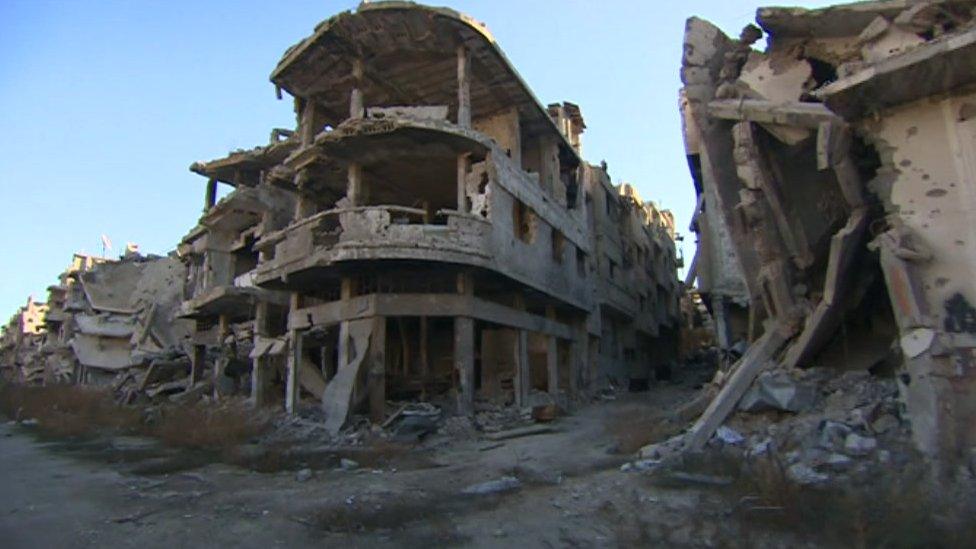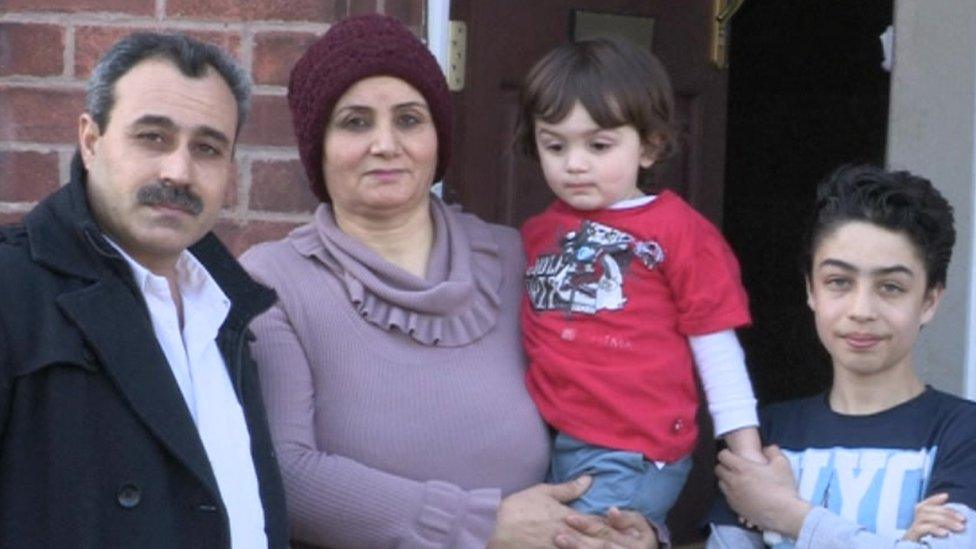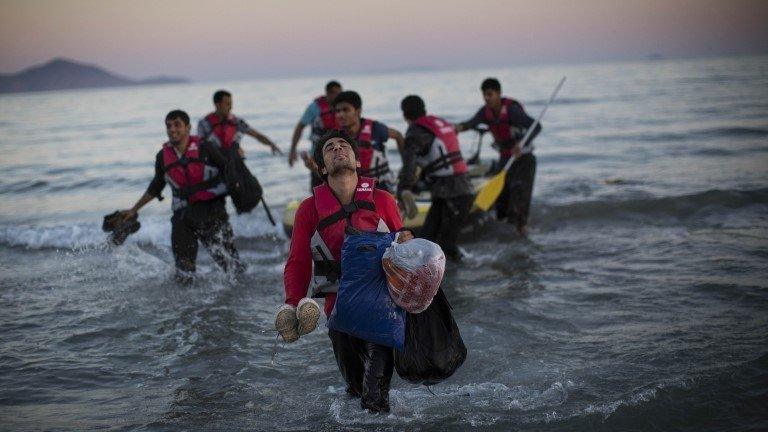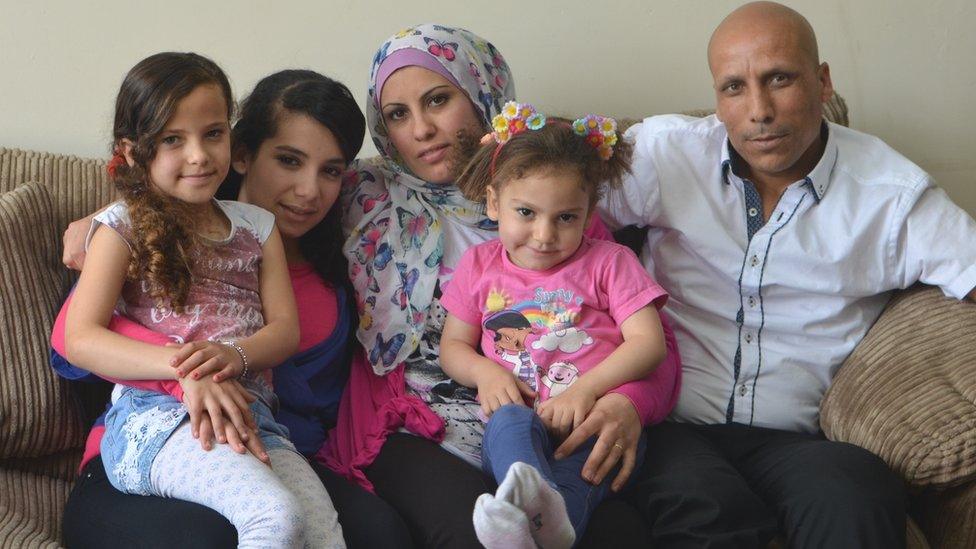Syrian refugees resettle in Yorkshire and the Humber
- Published

Homs in western Syria has seen some of the fiercest fighting of the four-year civil war
Fewer than 200 Syrian refugees have so far resettled in Yorkshire and the Humber after all councils in the region agreed to take a total of about 1,500.
The majority are living in Bradford, Leeds and Sheffield while none have yet arrived in North Yorkshire.
In December, all 21 councils said they had agreed to accept refugees as part of UK plans to house 20,000 people from Syria.
Bradford Council said it had no cap on the number of refugees it would accept.
A total of 173 refugees have so far arrived in the region. Fifty-two of those are in Bradford, 50 in Leeds, 10 in Kirklees and eight in Calderdale.
In other parts, 48 refugees have so far made their home in Sheffield while five have arrived in East Yorkshire.
Susan Hinchcliffe, Bradford council leader, said the city was built on centuries of migration, which had "contributed to its wealth and prosperity".
"We will continue to support refugees that come to the district as long as the government continue to finance those refugees."


Mohamad Khear Aboosh and his family spent three years in an Iraqi refugee camp
Mohamad Khear Aboosh and his wife Rooqaya Haji came to Bradford with their three children in October having spent three years in an Iraqi refugee camp after fleeing Syria.
The 42-year-old electrical engineer described how his children would run between trees to hide while government soldiers tried to shoot them.
His son Ivan, now 15, narrowly missed a bullet as it skimmed over his head.
The family were placed on the Vulnerable Persons Relocation (VPR) scheme, external because Ivan has a blood disorder, which means he needs regular transfusions.
Speaking of life in Bradford, Mr Aboosh said: "I see my children playing, having an education. I'm very happy they are safe."

Elsewhere in the region, about 35 out of 200 refugees are expected to arrive in North Yorkshire at the end of July.
They will be accommodated across Harrogate, Craven and Selby with others being resettled across the county over the next two and a half years.
The council said: "The timing of the arrival of refugees is driven by the schedule of flights arranged by the Home Office and the provision of housing identified by the district councils and health services."
- Published28 January 2016

- Published16 September 2015
